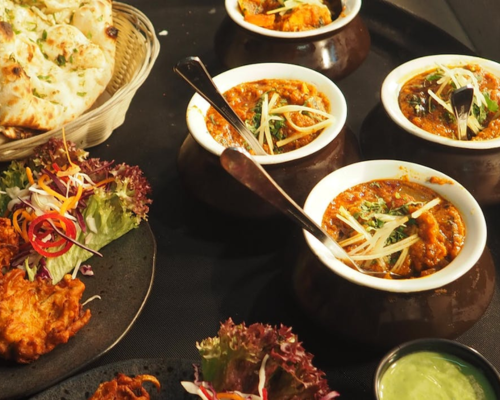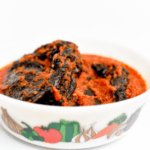Food delivery services are the current carriers of taste and tradition in a society where time is valuable and cultural ties are treasured. The desire for the cuisine of their continent is a deep-seated craving that cannot be disregarded by African immigrants living in the United States and Canada. The vivid flavor of Africa may now be enjoyed at the doorway of any African immigrant’s house thanks to food delivery businesses like the well-known Kabaia, a food processing business dedicated particularly to African immigrants. African immigrants may easily preserve their cultural identity and culinary history while enjoying the varied tastes of their native countries because of Kabaia’s commitment to acquiring and creating genuine African meals.
The Changing Landscape of Food Delivery Services
The food delivery sector has seen substantial expansion and change in recent years, altering how African immigrants may get their favorite dishes. The landscape of food delivery services has changed with the introduction of online platforms and smartphone apps, enabling clients to simply order their favorite African cuisine from nearby restaurants and specialized food providers. The procedure has become simple, and immigrants from Africa may now discover and enjoy in a wide variety of genuine African foods with just a few clicks on their cellphones, bringing the rich tastes of their native country to their fingertips.
Embracing Diversity: A Wide Range of African Cuisines


Africa is renowned for its extensive culinary history, diverse tastes, and distinctive regional cuisines. Food delivery services and providers have embraced this diversity by working with African-inspired eateries and chefs. These services cater to the many tastes and preferences of African immigrants, assuring a broad selection of alternatives, whether it be South African bobotie, Ethiopian injera, or West African jollof rice.
Convenience and Time-Saving with Food Delivery Services
The convenience that meal delivery services provide is one of its key benefits. Immigrants from Africa no longer have to spend all day cooking to enjoy a traditional dinner. They may save time and effort by ordering their favorite African cuisine online and having them delivered right to their house. Those who work long hours or don’t have easy access to African grocery shops and eateries will particularly value this ease.
Supporting African Immigrant-Owned Businesses
Food delivery services have given companies run by African immigrants a platform to expand their customer base. These services often collaborate with neighborhood African eateries and African ingredients suppliers, food carts, and caterers to help them grow their clientele and succeed in a cutthroat industry. African immigrants may eat traditional African food while supporting these companies, which will help their communities flourish and last.
Exploring New Flavors and Experiences
For African immigrants, using food delivery services has made it simpler to try new tastes and sensations. They might branch out from their go-to meals and sample regional delicacies from several African nations. Due to their exposure to many culinary traditions, African immigrants are better able to appreciate other cultures and maintain a connection to their heritage while adjusting to their new environment.
Catering to Dietary Preferences and Allergies
Food delivery services are well aware that it is crucial to accommodate customers with a variety of dietary preferences in addition to those who suffer from food allergies. African immigrants who have specific dietary requirements may be able to find acceptable solutions with the help of these agencies. It does not matter whether someone adheres to a vegetarian, vegan, gluten-free, or halal diet; they will always be able to discover delicious African food that meets their specific needs.
Creating a Sense of Community
African immigrant-specific food delivery businesses not only provide meals but also foster a strong feeling of community. These agencies are aware of how exceptional it is at bringing people together and fostering deep connections via meals. African immigrants may communicate with like-minded people, share their experiences, and have dialogues about their common passion for African food by including elements like reviews, ratings, and recommendations on various internet platforms. African immigrants may connect with other people who value the many cultures and traditions of Africa thanks to this feeling of community, which also develops cultural ties and promotes a sense of belonging.
Promoting Culinary Education and Cultural Exchange
Food delivery services may also provide as a forum for intercultural dialogue and culinary training. Numerous of these services include in-depth explanations of the foods, their components, and the cultural importance of them. This not only improves the eating experience but also encourages both African immigrants and non-African consumers to have a greater knowledge of African food and culture. People may cross cultural divides, cultivate respect, and have meaningful dialogues about African customs and history via cuisine.
Special Occasions and Celebrations
In African societies, food is a fundamental component of festivals and important events. Catering services for occasions like weddings, birthdays, and cultural festivals are provided by food delivery firms in order to meet these demands. Immigrants from Africa may readily purchase traditional foods in bigger quantities, making sure that their significant events are characterized with real tastes and culinary pleasures that bring back memories and a feeling of connection to their cultural past.
Supporting Sustainability and Local Sourcing
Delivery services for food are becoming more aware of sustainability and the value of encouraging local sources. Businesses run by African immigrants often place a high priority on using fresh, local products and traditional cooking methods to maintain the culinary legacy and keep tastes true to their origins. African immigrants may support companies that share their beliefs by using meal delivery services that place a high priority on sustainability and local sourcing.
Future Food Delivery Services
Food delivery services are probably going to become increasingly more advanced and personalized as technology keeps developing. Machine learning and artificial intelligence developments may improve personalization, suggest new meals based on previous purchases, and develop tailored meal plans for African immigrants. Furthermore, collaborations between African grocery shops and meal delivery businesses might increase the accessibility of genuine ingredients, allowing African immigrants to reproduce their favorite cuisines at home.
Feedback and Continuous Improvement
The effectiveness of meal delivery businesses that serve African immigrants depends heavily on feedback and ongoing development. These firms may improve their offers to better suit the distinct interests and expectations of African immigrants by actively collecting feedback from their consumers. African immigrants can voice their thoughts on the quality, authenticity, and overall experience of the served meals, providing delivery companies with useful information they may use to improve their services. Through this feedback loop, the services can improve their menus, get ingredients more efficiently, and guarantee that African immigrants wanting a flavor of the home will always have a delicious and rewarding culinary experience.
Conclusion
For African immigrants in the United States and Canada, food delivery services have changed the game by giving them easy access to a taste of Africa right at their door. These companies support local African immigrant-owned enterprises, foster cultural interchange, and provide a wide variety of genuine African dishes. African immigrants may enjoy their favorite foods, discover new cuisines, celebrate customs, and cultivate a feeling of community and belonging via meal delivery. The future presents even more exciting potential for elevating the flavor of Africa to the fore of culinary experiences, given the constantly changing environment of food delivery.




